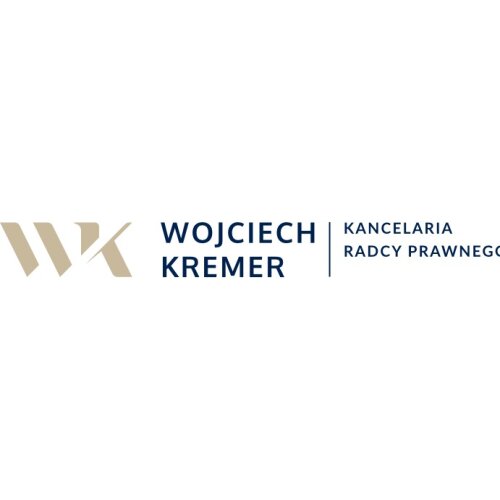Best Creditor Lawyers in Krakow
Share your needs with us, get contacted by law firms.
Free. Takes 2 min.
List of the best lawyers in Krakow, Poland
About Creditor Law in Krakow, Poland
Creditor law in Krakow, Poland, is part of the broader civil law framework that handles the rights and obligations of creditors and debtors. This area of law addresses various aspects like debt collection, bankruptcy proceedings, and secured transactions. It is designed to protect the rights of creditors while balancing the legal rights of debtors. The legal proceedings are generally governed by the Polish Civil Code and other relevant regulations, providing a structured process for creditors to claim debts and securing payment agreements. Krakow, being a major city, has a robust legal system to handle such matters.
Why You May Need a Lawyer
Individuals and businesses might seek legal assistance in creditor issues for several reasons. You may need a lawyer if you are facing difficulty in collecting debts owed to you, or if you are involved in a bankruptcy proceeding either as a creditor or a debtor. Legal counsel can offer assistance in negotiating settlements, navigating the complex legal landscape of bankruptcy, and ensuring compliance with local laws. Additionally, a lawyer can represent your interests in court should litigation become necessary, offering expertise to maximize your chances of a favorable outcome.
Local Laws Overview
The creditor laws in Krakow and Poland broadly are encapsulated within the Polish Civil Code, the Bankruptcy Law, and various tax and financial regulations. Important aspects include the enforcement procedures of debt collection, which are often carried out by court bailiffs under the direction of district courts. Krakow follows a structured bankruptcy procedure that begins with a declaration of insolvency and involves a detailed examination of the debtor's financial situation. Moreover, secured transactions such as mortgages and liens are subject to specific legal requirements to ensure the creditor's rights are prioritized.
Frequently Asked Questions
What is creditor law?
Creditor law involves the rules and regulations governing the rights of creditors to collect what is owed to them, as well as the protection of debtor's rights.
How can a creditor collect a debt in Krakow?
A creditor can collect a debt by initiating a legal proceeding through the court, which might issue an enforcement order to be executed by a court bailiff.
What steps are involved in bankruptcy proceedings?
Bankruptcy proceedings typically start with a court declaration of insolvency, followed by the assessment of the debtor's financial status, and the formulation of a payment or restructuring plan.
Can a creditor repossess property in case of a default?
Yes, if the property was used as collateral for a secured debt, a legal procedure can be initiated for repossession, following the due process under local laws.
What is the statute of limitations for debt collection in Poland?
In Poland, the general statute of limitations for debt collection is six years, but it may vary depending on the specific type of debt.
Can debts be disputed in Krakow?
Yes, debtors have the right to contest debts in court or through mediation, providing evidence or legal arguments why the debt is not valid or incorrect.
How does the debt enforcement process work?
The debt enforcement process involves obtaining a court order, which is then executed by a bailiff who is authorized to seize assets or garnish wages.
Are there alternative dispute resolutions available?
Yes, parties may resolve disputes through mediation or arbitration, which can be less time-consuming and more cost-effective compared to litigation.
What role do lawyers play in creditor cases?
Lawyers provide legal advice, represent clients in court, negotiate settlements, and ensure compliance with all applicable laws and regulations.
Can a creditor force a sale of debtor's assets?
In certain circumstances, court-sanctioned orders can allow the sale of debtor's assets to satisfy outstanding debts, particularly if assets were pledged as collateral.
Additional Resources
For further assistance, you may contact the Polish Bar Association for professional legal advice, or the Krakow Chamber of Commerce which can provide information on creditor-related business practices. Additionally, the National Debt Register offers resources for managing and understanding credit and debt issues in Poland.
Next Steps
If you anticipate needing legal assistance with creditor issues, the first step is to consult with a qualified attorney specializing in creditor law. Gather all relevant documentation, such as contracts, invoices, and communication records. Prepare specific questions or concerns to address during your legal consultation, and consider any alternative resolutions you might be open to pursuing. Always check the credentials and experience of any legal professional before engaging their services.
Lawzana helps you find the best lawyers and law firms in Krakow through a curated and pre-screened list of qualified legal professionals. Our platform offers rankings and detailed profiles of attorneys and law firms, allowing you to compare based on practice areas, including Creditor, experience, and client feedback.
Each profile includes a description of the firm's areas of practice, client reviews, team members and partners, year of establishment, spoken languages, office locations, contact information, social media presence, and any published articles or resources. Most firms on our platform speak English and are experienced in both local and international legal matters.
Get a quote from top-rated law firms in Krakow, Poland — quickly, securely, and without unnecessary hassle.
Disclaimer:
The information provided on this page is for general informational purposes only and does not constitute legal advice. While we strive to ensure the accuracy and relevance of the content, legal information may change over time, and interpretations of the law can vary. You should always consult with a qualified legal professional for advice specific to your situation.
We disclaim all liability for actions taken or not taken based on the content of this page. If you believe any information is incorrect or outdated, please contact us, and we will review and update it where appropriate.










